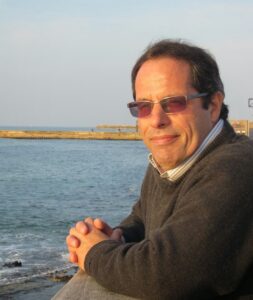The IFLA ENSULIB Webinar Series 13: Sustainability – Help Build Impact Indicators for Library-led Climate Action
IFLA has partnered with the Monitoring and Evaluating Climate Communication and Education (MECCE) Project to create an indicator of climate activities organized by libraries. The MECCE Project is working to increase the quantity and quality of climate communication and education (CCE) globally. The Project’s indicators, which are available on their global interactive data platform, support benchmarking, target setting, and progress in CCE provision by governments, civil society, and researchers. The library-specific climate communication and education global indicator provides a metric for understanding the roles libraries play in addressing the climate crisis. Join this webinar to find out more about MECCE Project, how you can participate in building indicators and how you can use this platform in your own libraries.
Speakers: Claire McGuire, Aaron Redman, and Aaron Benavot
 Claire McGuire is the Manager of Policy and Advocacy at IFLA. She coordinates IFLA’s work with UNESCO, and oversees policy and advocacy related to culture, heritage, education, sustainable development, and climate action. She works to integrate the perspective and impact of the global library field into international policy processes and advocate for a supportive environment for libraries in which they can deliver on their missions and realise their potential.
Claire McGuire is the Manager of Policy and Advocacy at IFLA. She coordinates IFLA’s work with UNESCO, and oversees policy and advocacy related to culture, heritage, education, sustainable development, and climate action. She works to integrate the perspective and impact of the global library field into international policy processes and advocate for a supportive environment for libraries in which they can deliver on their missions and realise their potential.
 Aaron Benavot is with MECCE Project partner, University at Albany – State University of New York. He leads the MECCE Project’s Indicator Development Axis, sits on the MECCE Project’s Steering Council, and Leads the project’s Indicator Expert Group and Indicator Working Group. He is also a Professor of global education policy in the School of Education at the University at Albany-SUNY. Aaron has co-authored/edited five books and is a contributing author on many UNESCO reports. From 2014-2017, Aaron served as Director of the Global Education Monitoring (GEM) Report. Its mandate is to monitor progress of education targets in the 2030 Agenda for Sustainable Development; consider effective policies to achieve quality, equitable and inclusive education and lifelong learning; and promote informed dialogue on education’s role in achieving sustainable development. As Director, Aaron oversaw the development of three reports — Education for all: 2000-2015: Achievements and challenges (2015); Education for people and planet: creating sustainable futures for all (2016); and Accountability and Education: Meeting our commitments (2017/8).
Aaron Benavot is with MECCE Project partner, University at Albany – State University of New York. He leads the MECCE Project’s Indicator Development Axis, sits on the MECCE Project’s Steering Council, and Leads the project’s Indicator Expert Group and Indicator Working Group. He is also a Professor of global education policy in the School of Education at the University at Albany-SUNY. Aaron has co-authored/edited five books and is a contributing author on many UNESCO reports. From 2014-2017, Aaron served as Director of the Global Education Monitoring (GEM) Report. Its mandate is to monitor progress of education targets in the 2030 Agenda for Sustainable Development; consider effective policies to achieve quality, equitable and inclusive education and lifelong learning; and promote informed dialogue on education’s role in achieving sustainable development. As Director, Aaron oversaw the development of three reports — Education for all: 2000-2015: Achievements and challenges (2015); Education for people and planet: creating sustainable futures for all (2016); and Accountability and Education: Meeting our commitments (2017/8).
 Aaron Redman is a MECCE Project Research Associate working with our Indicator Development team to innovate new climate change communication and education (CCE) data and indicators. In 2020 he completed his PhD in Sustainability from Arizona State University (ASU). His dissertation focused on clarifying a framework of key competencies in sustainability (what we students need to learn) and how to assess these competencies (measuring whether they are learning it). Aaron has taught sustainability courses for ASU as well as consulting for a variety of global USAID-funded projects. He has been engaged in both 2021 and 2022 by the 10 New Insights in Climate Science project summarizing and translating the latest climate research for global policymakers. Prior to completing his dissertation, he contributed to the Educating Future Change Agents project, a joint research project between Leuphana University in Germany and ASU focusing education best practices to support attaining key competencies in sustainability. Aaron also has worked as a sustainability professor in Leon, Mexico, and a Peace Corps Volunteer in El Salvador. He received his Master’s of Science in Sustainability from ASU.
Aaron Redman is a MECCE Project Research Associate working with our Indicator Development team to innovate new climate change communication and education (CCE) data and indicators. In 2020 he completed his PhD in Sustainability from Arizona State University (ASU). His dissertation focused on clarifying a framework of key competencies in sustainability (what we students need to learn) and how to assess these competencies (measuring whether they are learning it). Aaron has taught sustainability courses for ASU as well as consulting for a variety of global USAID-funded projects. He has been engaged in both 2021 and 2022 by the 10 New Insights in Climate Science project summarizing and translating the latest climate research for global policymakers. Prior to completing his dissertation, he contributed to the Educating Future Change Agents project, a joint research project between Leuphana University in Germany and ASU focusing education best practices to support attaining key competencies in sustainability. Aaron also has worked as a sustainability professor in Leon, Mexico, and a Peace Corps Volunteer in El Salvador. He received his Master’s of Science in Sustainability from ASU.

Series Organizers
- Antonia Mocatta [email protected]
- Priscilla Pun [email protected]
- Beth Filar Williams [email protected]
- Vivienne Byrd [email protected]
- Harri Sahavirta [email protected]